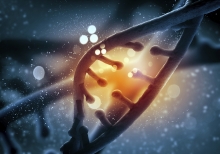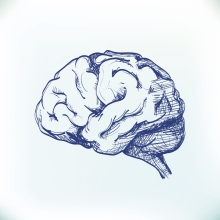
Same gene can encode proteins with divergent functions
By Cynthia Lee, McGill Newsroom
It’s not unusual for siblings to seem more dissimilar than similar: one becoming a florist, for example, another becoming a flutist, and another becoming a physicist.

Common gene variant influences food choices
By Katherine Gombay, McGill Newsroom
If you’re fat, can you blame it on your genes? The answer is a qualified yes. Maybe. Under certain circumstances. Researchers are moving towards a better understanding of some of the roots of obesity.

Location may be key to effectively controlling pain
By Cynthia Lee
Newsroom


Chronic pain changes our immune systems
By Cynthia Lee Newsroom
Chronic pain may reprogram the way genes work in the immune system, according to a new study by McGill University researchers published in the journal Scientific Reports.

Leadership: Key to care, retention among nurses
By Cynthia Lee
Newsroom
Guidelines for human genome editing
By Vincent C. Allaire Newsroom
Human genome editing for both research and therapy is progressing, raising ethical questions among scientists around the world.

Fight tumors and infections with targeted drugs
By Cynthia Lee

$5M for Malaria, Tuberculosis Drug-discovery Research
University of Toronto and McGill University scientists are leading an international partnership to discover new and improved drug treatments for tuberculosis, malaria and neglected tropical diseases -- thanks to a contribution from Merck Canada Inc., as well as an additional $5 million supplement to a grant from the Bill & Melinda Gates Foundation. The new funding brings the total investment from the Bill & Melinda Gates Foundation to nearly US $12 million since 2012.

What is your memory style?
Why is it that some people have richly detailed recollection of past experiences (episodic memory), while others tend to remember just the facts without details (semantic memory)?
A research team from the Rotman Research Institute at Baycrest Health Sciences has shown for the first time that these different ways of experiencing the past are associated with distinct brain connectivity patterns that may be inherent to the individual and suggest a life-long “memory trait”.

Cleaning wounds: saline water trumps soap and water
Now, an international team of researchers led by McMaster University in collaboration with the Research Institute of the McGill University Health Centre has found that soap and water is actually less effective than just using saline water.
The findings, which were published in the New England Journal of Medicine, could lead to significant cost savings, particularly in developing countries where open fractures are particularly common.

First language wires brain for later language-learning
Research also demonstrates brain's plasticity and ability to adapt to new language environments

Improving health, one step at a time
It may be surprising, but Canadians who live in densely-populated areas where stores, banks, schools and other services are close by do not walk as much as they should.

How can I tell if they're lying?
Sarcasm, white lies and teasing can be difficult to identify for those with certain disorders – new video inventory developed at McGill may help

